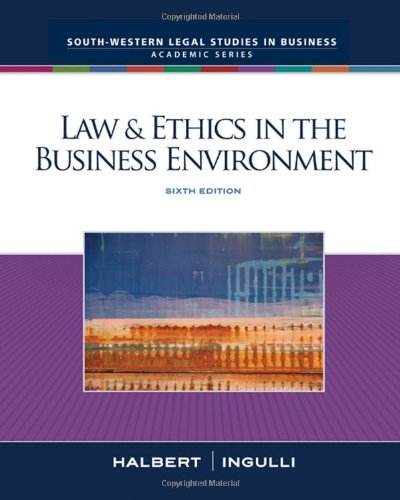Internet Assignment On appeal, the Supreme Court reversed. Justice Souter explained why: The EEOC was certainly acting
Question:
Internet Assignment On appeal, the Supreme Court reversed. Justice Souter explained why:
“The EEOC was certainly acting within the reasonable zone when it saw a difference between rejecting workplace paternalism and ignoring specific and documented risks to the employee himself, even if the employee would take his chances for the sake of getting a job.” Chevron USA Inc. v. Echazabal, 536 U.S. 73, 122 S.Ct. 2045 (2002). The “direct threat defense” is allowable, according to the Court, when it is based on a “‘reasonable medical judgment that relies on the most current medical knowledge and/or the best available objective evidence,’ and upon an expressly ‘individualized assessment of the individual’s present ability to safely perform the essential functions of the job.…’” Find out how the lower courts applied the test when they revisited Echazabal on remand from the Supreme Court. Are you satisfied that Chevron’s decisions were not based on the kind of pretextual stereotypes at which the ADA is aimed?
Mario Echazabal sues over not getting a job handling liver-toxic substances, i.e., “hydrocarbon liquids and vapors, acid, caustic, refinery waste water and sludge, petroleum solvents, oils, greases, and chlorine bleach.” He was denied the job because he suffers from a chronic, uncorrectable, and life-threatening viral liver disease, Hepatitis C, that most likely will be aggravated by exposure to these hazardous materials to the extent that his life will be endangered.
[Under the ADA, employers are not required to hire disabled individuals unless they are “otherwise qualified” to handle the “essential functions” of the job.] … Mr. Echazabal simply is not “otherwise qualified” for the work he seeks. Why? Because the job most probably will endanger his life. I do not understand how we can claim he can perform the essential functions of the position he seeks when precisely because of his disability, those functions may kill him. To ignore this reality is bizarre.…
Our law books, both state and federal, overflow with statutes and rules designed by representative governments to protect workers from harm long before we rejected the idea that workers toil at their own peril in the workplace. “Paternalism” here is just an abstract out-of-place label of no analytical help. Whether paternalism or maternalism, the concept is pernicious when it is allowed to dislodge longstanding laws mandating workplace safety. That battle was fought and lost long ago in our legislatures. In many jurisdictions, it is a crime knowingly to subject workers to life-endangering conditions.… In effect, we repeal these laws with respect to [Echazabal], and to other workers in similar situations. So much for OSHA. Now, our laws give less protection to workers known to be in danger than they afford to those who are not. That seems upside down and backwards.
Precisely the workers who need protection can sue because they receive what they need.…
Step by Step Answer:

Law And Ethics In The Business Environment
ISBN: 9780324657326
6th Edition
Authors: Terry Halbert , Elaine Ingulli





